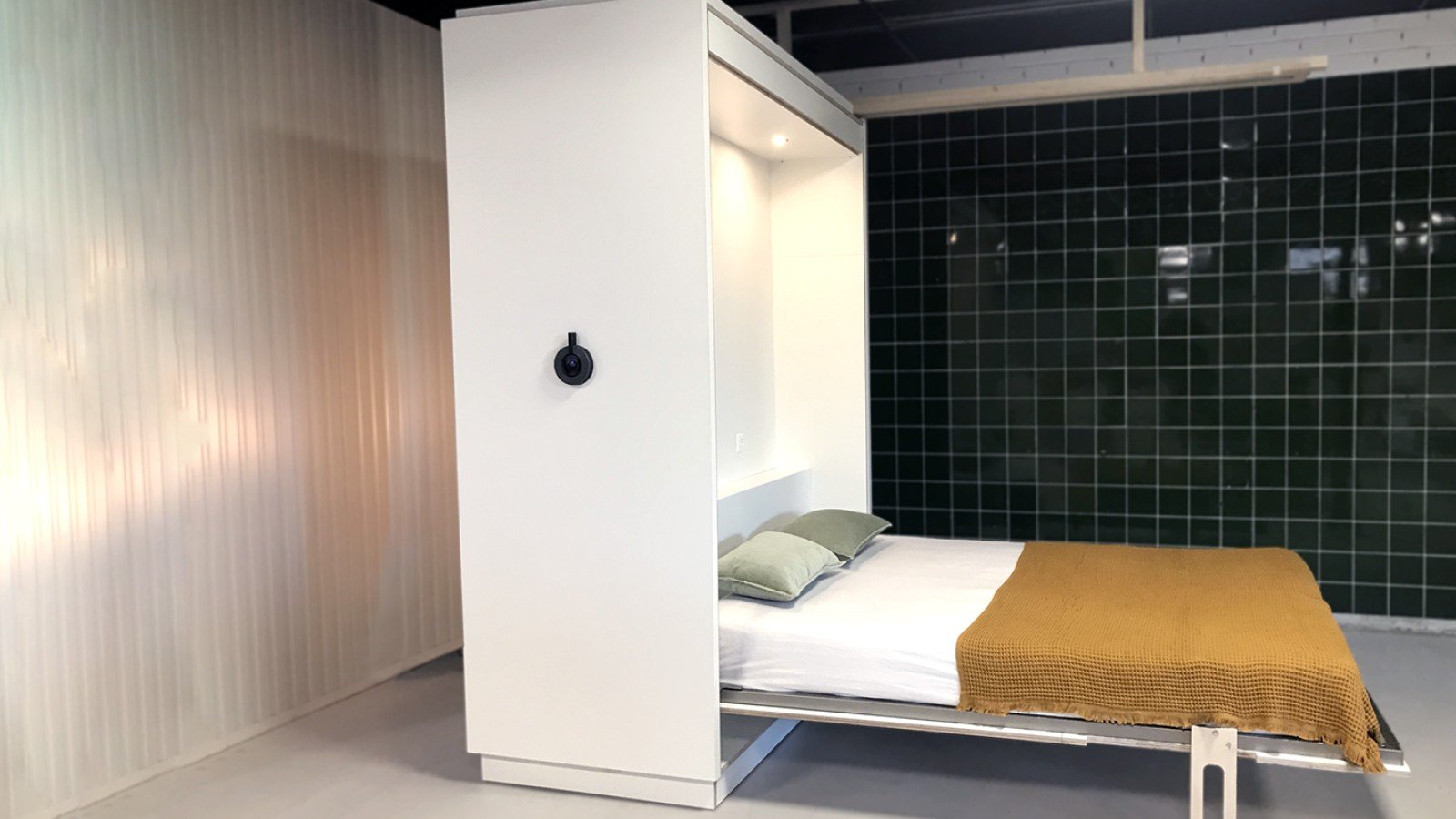-
Applications
-
Product families
-
About Bruynzeel
-
Highlights
News
The flexible furniture wall: an innovative urban living project
13-05-2022
The Collaboration
The flexible furniture wall was initiated by the architect firm Tengbom and the Nordic housing developer OBOS, who were conducting a pre-study on flexible walls. They got in contact with Bruynzeel and asked if we would be interested in developing a prototype of a flexible furniture wall specifically adapted for urban living households. This resulted in a collaboration between the three parties, where all companies contributed their expertise. Tengbom contributed with the design, Bruynzeel with the actual product development of the furniture wall, and OBOS had apartments where we were able to test and use the product.
Start of the Project
“It all started from the idea, how we could create space that could change during the life period of the user, which answers the users’ needs to use in their homes, and in their jobs. As well as delivering a product that is both user friendly and social sustainable.” – Joao Pereira Head Architect at Tengbom
The market for smarter solutions for small living spaces are growing as the world population and urbanization are continuously growing. The future of housing in larger cities will change and homes will be a lot smaller. The available space and related to that, costs to live in cities are tremendously high.
“We see that there is a demand for space-efficient apartments and we wanted to be able to create apartments where we make the best use of the floor space and to be able to offer apartments at a good price.” – Mathias Karlstad Development Manager at OBOS
Sustainability
From a sustainability perspective the effects of building smaller homes is also very positive, as smaller homes requires less materials when you build it, and less energy for heating or lighting.
“For me it’s 100% clear that the majority of people can’t live and afford homes with a surface of 100m2 or more in the future. If we can create space based on the daily activities this won’t be needed anymore, and if this is possible and in the meantime creates a spacious feeling it won’t be necessary to have these large houses anymore for a lot of people!" – Roland van der Velden, innovation manager at Bruynzeel
The Flexible Furniture Wall
The flexible furniture wall is a multifunctional piece of furniture that has several different functions. In this case, it is a movable furniture wall consisting of a bed, a dining area, or a work area.
The furniture wall is a trackless mobile solution which you control via a remote control and via the user interface. The concept will contribute to our daily activities by offering the space we need at a certain time of day. You can either use the wall as a divider. Where you get one bedroom on one side and a smaller space on the other. Or you can pull up the bed and move the furniture wall to another wall, which creates more space for other purposes during daytime when you don’t use a bedroom.
“We understand that the apartments within closed fixed walls is something that is really old and we need to create new and smarter solutions. I strongly believe that these kind of products and these kind of solutions can create new products for the future.” – Joao Pereira, Head Architect at Tengbom